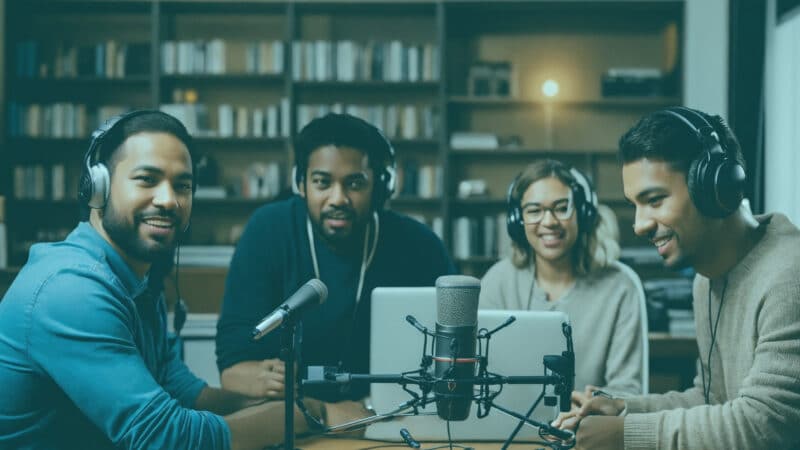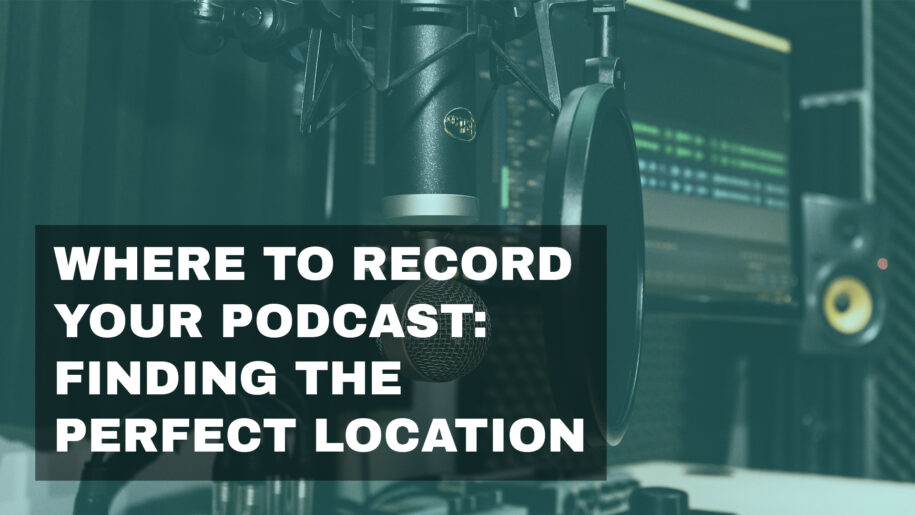Whether you’re a seasoned podcaster or just starting out, the location where you record can significantly affect the quality and ambiance of your podcast. From sound acoustics to the convenience of setup, every aspect of your recording environment contributes to the final product. In this guide, we explore various options for where to record your podcast, helping you find a spot that ensures clarity, comfort, and consistency.
1. Home Studio
The Comfort of Your Own Space
Setting up a home studio is the most common choice for many podcasters due to its convenience and control over the environment.
- Advantages: Control over noise levels, freedom to record at any time, and the ability to personalize the space to your liking.
- Considerations: Invest in soundproofing materials like acoustic panels or foam to enhance sound quality. Ensure the room is isolated from household noise and disturbances.
2. Professional Recording Studios
High-Quality Equipment and Acoustics
For those looking for the highest audio quality, renting a professional studio can be worth the investment.
- Advantages: Access to top-tier equipment, acoustically treated rooms, and sometimes assistance from audio technicians.
- Considerations: Professional studios can be costly and require bookings in advance, which might not be ideal for more spontaneous recording sessions.

3. Co-Working Spaces
Community and Flexibility
Many co-working spaces offer podcasting booths or rooms equipped for audio and video recording.
- Advantages: These spaces often provide good acoustic environments and networking opportunities with other creators.
- Considerations: Availability can vary, and there might be time limits on how long you can use the space.
4. Outdoor Locations
Natural Ambiance and Authenticity
Recording outdoors can add a unique, authentic vibe to your podcast, particularly if it relates to nature or outdoor activities.
- Advantages: The natural sound backdrop can enhance the thematic elements of your podcast.
- Considerations: Contending with weather, background noise, and potential interruptions can be challenging. Use windshields and consider lapel mics for better sound capture.

5. Rented Office Space
Dedicated and Professional
Renting a small office solely for podcasting is a middle ground between a home studio and a professional recording studio.
- Advantages: A quiet, dedicated space that you can set up once and use consistently without setup and teardown each time.
- Considerations: This option involves a rental cost and typically a longer-term commitment than a co-working space.
6. On the Go
Mobile Podcasting
For interview-style or travel podcasts, recording on the go using portable equipment can bring a dynamic element to your content.
- Advantages: Allows you to capture interviews and content anywhere, adding diversity and spontaneity to your episodes.
- Considerations: Requires investing in portable, high-quality recording gear that can handle diverse environments and minimize background noise.
Choosing where to record your podcast depends on your specific needs, budget, and the style of your podcast. Whether it’s the comfort of a home studio or the professional setting of a recording studio, each location offers unique benefits and challenges. Consider what atmosphere and sound quality you need to best convey your podcast’s theme and connect with your audience. Remember, the right environment not only improves the quality of your recordings but also makes the process more enjoyable and sustainable for you as a creator.


